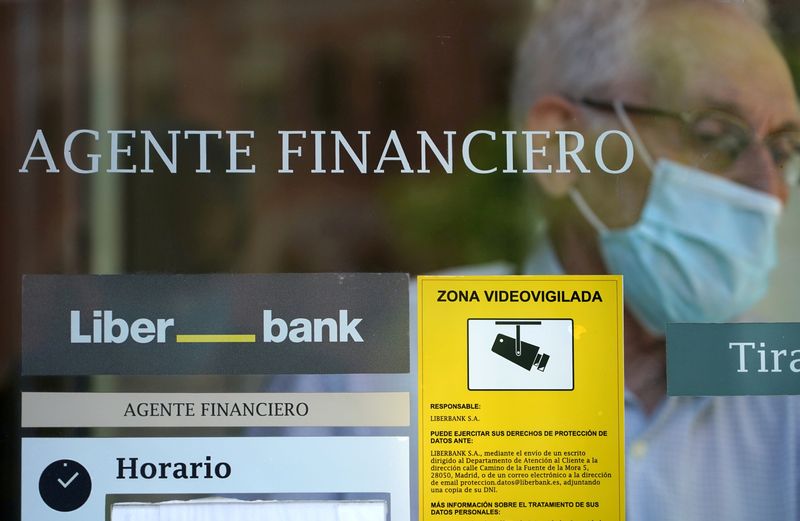By Jesús Aguado
MADRID (Reuters) -Lower lending income and one-off charges were responsible for a loss of 18 million euros ($20.33 million) at Spanish lender Unicaja in the fourth quarter, despite an increase in fees.
In a defensive deal closed at the end of July to protect itself from the pressure of ultra low interest rates and the impact from the COVID-19 pandemic, Unicaja bought rival Liberbank to create Spain's fifth-largest bank in terms of assets..
The bottom line did not include extraordinary items related to the merger. In the same quarter of 2020, Unicaja reported a loss of 17 million euros when combining Liberbank's business on a pro forma basis.
Net interest income, or earnings on loans minus deposit costs, fell 17.8% year-on-year to 235 million euros in the fourth quarter. Analysts expected it to be 240 million euros.
For the whole of 2021, and taking into account a bad will gain - a paper profit that occurs when an asset is bought below its book value - of around 1.3 billion euros in the third quarter and restructuring costs of 368 million euros, Unicaja reported a net profit of 1.1 billion euros.
Excluding extraordinary costs related to the merger, net profit on a pro forma basis rose 47% to 137 million euros in 2021 partly lifted by an increase in fees.
Unicaja shares were 0.5% down in morning trading, while Spain's blue-chip index Ibex-35 fell 0.4%.
Broker Caixabank said the loss was driven by lower NII and higher provisions, while fees costs and trading beat expectations.
Banks across Europe are under growing pressure from rising bad debts and record low interest rates, which is driving lenders to look for other areas of growth, such as commissions generated in private banking.
At Unicaja, total fees rose 19.5% in 2021 compared to 2020 and 20.7% year-on-year in the fourth quarter.

As part of a recently announced new three-year strategic plan, the lender is counting on fee income, cost savings and a push towards consumer lending to drive profitability.
($1 = 0.8855 euros)